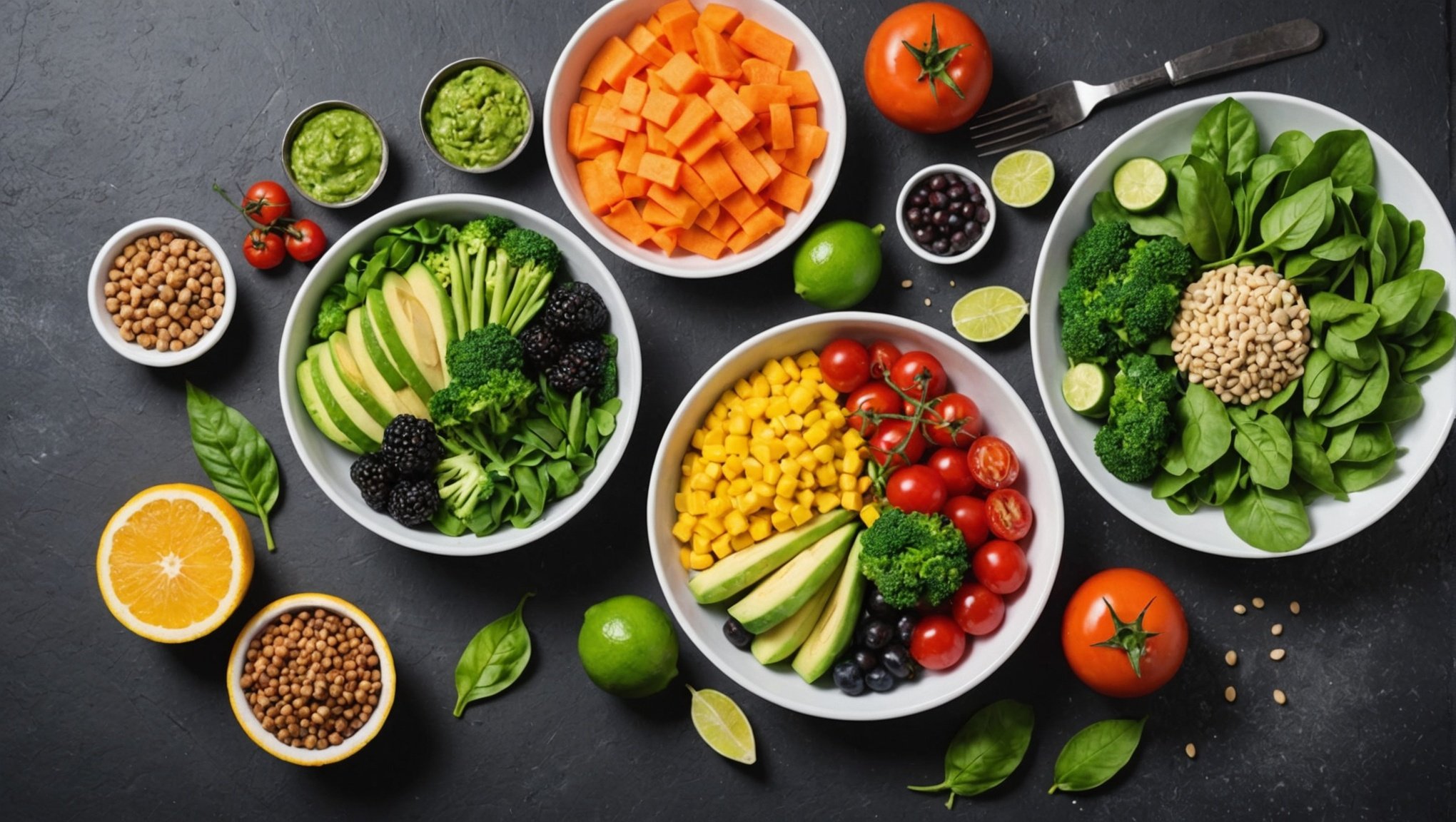Overview of Customized Plant-Based Diet Plans
In the UK sports scene, vegan athletes often face unique challenges when it comes to nutrition. Embracing a plant-based lifestyle can lead to questions about meeting nutritional needs. Customized plant-based diet plans are essential for addressing these concerns.
Understanding Vegan Athletes’ Needs
For vegan athletes, tailored nutrition plays a vital role in optimizing performance. It’s not just about eliminating animal products; rather, it involves carefully crafting a diet plan that considers the specific demands of athletic activities.
This might interest you : Exploring the Benefits of Altitude Training for Long-Distance Runners in the UK
Importance of Tailored Nutrition
A personalized approach to nutrition ensures that vegan athletes receive the adequate macro and micronutrients required for their sport. Essential elements like protein, iron, and vitamin B12 need careful consideration. Suboptimal nutritional intake could lead to fatigue or decreased performance, emphasizing the need for customized nutrition.
Key Nutritional Components
To thrive, athletes require a diet rich in:
Also to see : Navigating the Complexities of Multi-Sport Event Management in the UK: Key Challenges Uncovered
- Protein: Essential for muscle repair and growth, achievable through legumes, tofu, and nutritional yeast.
- Iron: Vital for oxygen transport, found in spinach, lentils, and fortified cereals.
- Omega-3 fatty acids: Play a crucial role in inflammation reduction and heart health, sourced from flaxseeds and walnuts.
Plant-based diet plans tailored to individual needs ensure that vegan athletes can not only sustain but also excel in their sports endeavors, reinforcing the significance of customization in dietary planning.
Nutrient Considerations for Vegan Athletes
Exploring vegan nutrition is essential for athletes striving to optimise their athletic performance. With careful planning, plant-based diets can provide all necessary nutrients.
Protein Sources and Requirements
Adequate protein intake is crucial for muscle recovery and growth. Vegan athletes can meet their needs through diverse sources such as beans, lentils, tofu, and tempeh. These foods offer a good range of essential nutrients. Combining different plant-based protein sources can enhance their biological value, ensuring the availability of all essential amino acids.
Essential Fatty Acids and Omega-3s
Omega-3 fatty acids play a significant role in reducing inflammation and promoting brain health. Vegans can obtain omega-3s from seeds like chia and flaxseeds, as well as walnuts. These sources help compensate for the absence of fish in their diet, ensuring adequate intake of vital fatty acids.
Micronutrients: Vitamins and Minerals
Maintaining proper levels of vitamins and minerals is another vital aspect of vegan nutrition. Particular attention should be given to vitamin B12, iron, calcium, and zinc. Fortified foods and supplements can be beneficial to meet these micronutrient requirements. Additionally, a variety of colourful fruits and vegetables will support a balanced intake of vitamins and antioxidants, contributing to improved athletic performance.
Meal Planning Strategies
Meal planning is essential for those aiming to maintain a nutritious lifestyle, especially when focusing on vegan recipes and sports nutrition. Crafting balanced meals begins with understanding your caloric and nutritional needs. Consider your daily activity level and base your meal plans on these metrics for sustainable health benefits.
Creating a diverse menu is crucial in ensuring a well-rounded diet. Integrate various food groups by utilizing vegan recipes that incorporate proteins, carbohydrates, fats, vitamins, and minerals. For example, a balanced vegan meal might include quinoa for protein, avocado for healthy fats, and a mix of vibrant vegetables for vitamins and minerals.
To maximise energy levels, consider the timing and frequency of meals. Regularly scheduled eating intervals help maintain consistent energy throughout the day, which is key in sports nutrition. Athletes and active individuals should plan for three main meals with several small snacks. This approach provides sustained energy and facilitates quicker recovery post-exercise.
By implementing these meal planning strategies, individuals can fully meet their dietary requirements and support both physical performance and overall wellness. With thoughtful preparation and an emphasis on nutritional diversity, meal plans can be tailored to individual lifestyle needs, ensuring optimal health benefits.
Addressing Common Challenges Faced by Vegan Athletes
Vegan athletes often encounter unique challenges that can impact their performance. These challenges include meeting caloric needs, managing digestive health, and overcoming social and cultural barriers. This section delves into these aspects, offering practical nutritional solutions to enhance performance.
Meeting Caloric Needs
One significant hurdle for a vegan athlete is ensuring adequate caloric intake. Plant-based diets can be high in fiber, which may lead to a feeling of fullness before consuming enough calories. To combat this, athletes should focus on energy-dense foods like nuts, seeds, and starchy vegetables. Including healthy fats such as avocados and coconut oil can also boost caloric intake efficiently. Meal planning plays a crucial role in maintaining an optimal energy balance.
Managing Digestive Health
Digestive issues are not uncommon among vegan athletes due to increased fiber consumption. Gradual adjustments to fiber intake can help alleviate discomfort. Probiotics and fermented foods like kimchi and yogurt (plant-based) can improve gut health. Staying hydrated and chewing thoroughly also aids digestion. It’s essential to monitor personal tolerance levels to various foods and adjust dietary habits accordingly.
Overcoming Social and Cultural Barriers
Social situations can pose performance barriers for vegan athletes. When attending events or gatherings, it’s beneficial to inform hosts of dietary preferences in advance or bring a vegan-friendly dish to share. Understanding cultural nuances and having vegan-friendly recipes on hand empower athletes to navigate these scenarios with ease. Communicating openly about a vegan lifestyle can promote inclusivity and support.
Case Studies and Practical Examples
Exploring real-world examples of successful vegan athletes provides valuable insights into the effectiveness of plant-based nutrition. Endurance athlete Scott Jurek, known for his ultramarathon achievements, credits his success to a fully plant-based diet. Jurek emphasizes the importance of whole foods such as fruits, vegetables, and grains, which not only fuel his intense training but also enhance recovery.
Applied nutrition strategies vary among athletes, depending on their specific needs and goals. For instance, bodybuilder Torre Washington focuses on a high-protein plant-based diet to support muscle growth and maintenance. He incorporates legumes, tofu, and quinoa into his meals, ensuring he meets the protein requirements necessary for his sport.
Lessons learned from these athletes highlight the necessity of tailoring a plant-based diet to individual athletic demands. While some athletes may require higher protein intake, others may prioritize carbohydrates for endurance. Successful athletes often work with nutritionists to customize their diets, incorporating supplements when necessary and adjusting meal plans based on training cycles.
Such athlete success stories demonstrate that a well-planned vegan diet can support various athletic endeavors. By drawing upon these examples, aspiring athletes can explore plant-based options that align with their goals, enhancing performance while maintaining a compassionate lifestyle.






